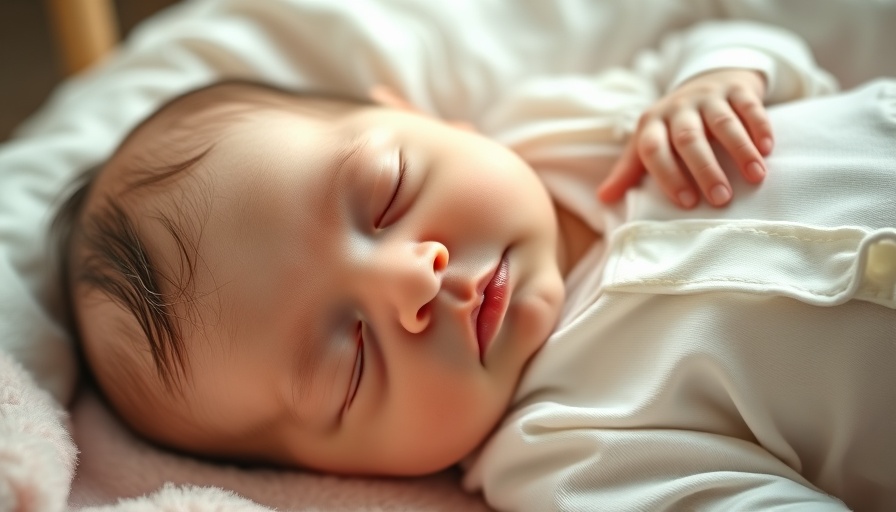
The Surprising Role of Body Signals in Infant Development
In a groundbreaking study from the University of Vienna, researchers reveal that babies as young as three months can perceive their own heartbeat and breathing, essential skills that contribute to early self-awareness. This study not only breaks new ground in understanding infant development but also underscores how internal body signals impact emotional awareness and identity formation.
Understanding the Research: How Was It Done?
Measuring subtle sensations in infants poses unique challenges. Due to the inability of babies to verbally communicate their feelings, researchers employed innovative techniques to track eye movements as babies observed animated figures. These figures either moved in sync with the infants' heartbeats and breathing or with slight delays.
The results indicate that babies looked significantly longer when the figures moved synchronously, suggesting they recognized a connection with their own body rhythms. This implies an early form of self-awareness crucial for their interaction with the world and caregivers.
Implications for Caregivers and Developmental Psychology
Understanding that infants can track their own body signals is pivotal for caregivers and psychologists. This capability may help caregivers respond more effectively to the needs of infants, as babies often depend on adults to interpret their signals, such as hunger or discomfort.
This new data provides a roadmap for future research, emphasizing the need to study how these early perceptions lay the groundwork for developmental processes. As emotional and physical health awareness in children becomes increasingly addressed, recognizing the role of self-perception can inform various caregiving and educational strategies.
Linking Body Awareness with Emotional Health
Body awareness is integral not only in childhood but remains vital throughout one’s life. As noted in various studies, the ability to perceive and understand body signals correlates with mental health outcomes. Enhancing these skills in early childhood may lead to better emotional regulation as the child matures.
This research opens avenues for preventive mental health strategies by incorporating body signal education in childhood care. If children learn to recognize and articulate their body signals early, they may navigate emotional challenges more effectively later in life.
Future Predictions: What Lies Ahead?
The findings from this study mark an important turning point in developmental psychology and the understanding of infant behaviors. Researchers hope to explore further how enhancing body signal awareness can assist in various areas like educational interventions, therapy practices, and emotional support frameworks.
Future studies could entail deeper investigations into how these abilities evolve alongside other cognitive and emotional skills. It may open a path toward tailored developmental approaches that foster well-being from infancy into adulthood.
Addressing Common Misconceptions About Infant Perception
Many may assume that infants are unaware of their bodily sensations, but this research highlights a developing awareness from an astonishingly young age. The misconception that body awareness is purely a later developmental milestone is challenged by these findings.
Realizing that self-perception starts in infancy calls for a paradigm shift in interventions and caregiver approaches. Recognizing the role of body signals can yield practical actions, such as promoting responsive caregiving and body awareness activities in early childhood education.
Final Thoughts: The Importance of Awareness in Early Child Development
This study's implications extend far beyond the confines of laboratory research. By fostering an understanding of self and body signals, caregivers and educators can more effectively support children's growth. The newfound ability for infants to perceive both heartbeat and breathing could inform interventions that prioritize emotional and psychological health from an early age, paving the way for healthier relationships with one's body and emotions.
 Add Row
Add Row  Add
Add 




Write A Comment